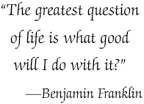2013 Seminars
The 3rd Third will present the following seminars for 2013. Seminars will normally be held in Golden, Colorado, although at times they will be held in other parts of Colorado.
Coffee will be available at 9:45 am and all seminars will be from 10:00 am to 3:00 pm Free beverages and lunch will be provided. Those with dietary restrictions are asked to bring their own lunch.
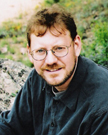
Thursday, January 17
Steve Grinstead
The History Colorado Center
and the Changing Face of Museum Publications
Join History Colorado managing editor Steve Grinstead as he explores the stories told at Denver's new History Colorado Center. Just how were those stories chosen from the endless possibilities? How do you create a brand-new state history museum from the ground up? Then, take a look at the 90-year legacy of the publications of History Colorado, formerly the Colorado Historical Society. What did the first Colorado Magazine look like, and how did it evolve into today's Colorado Heritage? What historic personalities and stories would you like to see in upcoming issues? What are the stories from our own lifetimes that deserve a second look as historic events? STEVE GRINSTEAD is managing editor and has been with History Colorado for seventeen years. He is the coauthor of the Colorado Book Award-winning Walking Into Colorado's Past: 50 Front Range History Hikes.
Thursday, February 21
Snowed Out
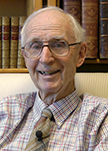
Thursday, March 21
Bruce Paton
Exploration: Adventuring with Boldness
Bruce Paton
Exploration: Adventuring with Boldness
Join us as Bruce Paton takes us through the journeys of eight key explorers. What were they in search of? What
drove them to set out to unexplored lands? Were they good leaders or faulted? The conclusions may surprise you.
Some of the adventurers to be featured include Captain Bligh, Meriwether Lewis, Zebulon Pike, and John Wesley
Powell. Bruce will also examine the explorers themselves: who lived, who died, and why; food-supply issues
and cannibalism; interaction with indigenous people; the medical challenges of injuries and disease and how
that affected morale. He'll round out the day with the most important aspect-leadership. What made these men
tick and how did they inspire others to follow them?
BRUCE C. PATON, M.D., is not only a fine photographer but an accomplished artist and is the author of Adventuring
with Boldness: The Triumph of the Explorers; and Lewis and Clark: Doctors in the Wilderness.

Thursday, April 18
Donald Yale
The History, Players, and Prospect for Peace in the Middle East
The Muslim world stretching from Turkey to Morocco is in turmoil. Are these areas experiencing civil war and unrest due to Sunni-Shiite age old animosity, Islamic fundamentalism, economic conditions and a desire to modernize and become part of the 21st century world, hegemonic desires of Turkey and Iran, tribal and nationalistic desires, all of the above and/or much more? How does Israel complicate this unrest and instability, or is it irrelevant? Do the Palestinians and a proposed state matter and does anyone really care about peace between Israel and her neighbors? In order to understand all that is in play, understanding context and history is crucial. In this program, the historical beginnings of Judaism, the Exodus from Egypt, accepting Mosaic law, conquering and inhabiting the Land of Israel, expulsion and the Diaspora and why the last 2000 year longing for the reestablishment of a Jewish homeland inform today's Mideast place for Israel in modern times. Israel does not exist in a vacuum. The events of the Arab Spring and its aftermath have far reaching implications for the prospect of peace in the region. We will explore the events and attitudes including first hand interviews with politicians, business people, NGOs operating in these areas, demonstrators and activists in the center of the Arab Spring and emerging political parties trying to form governments in the wake of the dismemberment of the prior institutions. Events are unfolding as we speak and by the time of the program, much may have changed. The program is designed to be interactive including input from all in attendance.

Thursday, May 16
Judy Volc
Breadth and Depth in Children's Literature
No matter the age, we are all children when we hear a good story. But what makes a good children's book? Librarian and Children's Literature expert Judy Volc will enlighten. When you read 1,100 to 1,500 children's books a year you can tell if a book will connect with kids. Judy can tell. She's read thousands of Children's books over her nearly 50 years as a children's librarian, deciding which ones to purchase for the library. Judy regularly had 5 to 30 programs each week for children—reading, storytelling, and book talks. She also has read to children (and continues to do so), many of them now bring their children or grandchildren to hear Judy read. Sought after as an expert on children's literature, Judy has taught classes at many universities and colleges throughout the country. She was appointed to serve on the Newbery committee—this prestigious award goes to the very best children's book authors every year. Judy has spoken annually at the CU Children's Literature Conference and also at numerous reading and children's literature conferences around the country including IRA, NCTE, NAEYC, and SCBWI. Judy will bring a variety of picture books to discuss and illustrate her points. Please join us, it will be a visual treat.
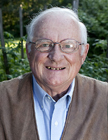
Thursday, June 13
Jerry Apps
Writing Your Story
We all have stories to tell of our childhood years, first jobs, military life, life-changing events and
never told secrets. In this workshop, participants will learn how to change memories into memoirs as they
focus on their own unique and original life experiences. Using life events as grist, participants will
explore the creative art of writing stories to be shared with family, perhaps published as a children's
book, a personal memoir, or even a novel. Jerry will offer tips for exploring one's memory, and provide
an opportunity to do writing during the workshop. Along the way, participants will learn the elements of
a good story including how to avoid common pitfalls. Letters From Hillside Farm, Jerry's new book
is an illustration of turning life-experience into a book. No previous writing experience is necessary.
Jerry, an emeritus professor, University of Wisconsin-Madison, writes novels and nonfiction about the outdoors,
country life, and rural living for adults and children. He received the 2008 First Place Nature Writing Award
from the Midwest Independent Publishers Association and the 2007 Major Achievement Award from the Council
for Wisconsin Writers. He was elected a Fellow in Wisconsin Academy of Sciences Arts and Letters in 2012.
A marvelous storyteller, Jerry will give us the essential steps and ingredients in writing our own stories,
and how to write them so they will be of historical interest to others as well.
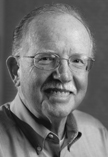
Thursday, July 18
Dick Kreck
Hell on Wheels
The Wild West was more than cowboys, it was also the raucous and unfettered railroad settlements that
followed the tracks. With the building of the Union Pacific Railroad in the 1860s, a new era of travel
was born. Journeys that had once taken several perilous months, now took only days. The railroad's
construction was a tremendous undertaking as workers battled the land, the weather, and nearby Indian
tribes in order to complete the track. As the railroad made its way west, overnight settlements known
as "Hell on Wheels" sprang up. Dick Kreck will talk about these wild towns from the legitimate businessmen
to the gamblers and prostitutes to the heroic individuals who finally established permanent towns in the
interior West.
DICK KRECK retired from The Denver Post after thirty-eight years as an editor and columnist. He
previously worked at the San Francisco Examiner and the Los Angeles Times. He is the author
of five other books, including the best sellers Murder at the Brown Palace: A True Story of Seduction
and Betrayal and Smaldone: The Untold Story of an American Crime Family.
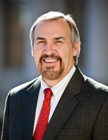
Thursday, August 15
Guillermo Vidal
Boxing for Cuba
Former Denver Mayor, Guillermo Vidal, will talk about growing up in Cuba during the time of the Castro revolution and what a profound effect that had on he and his family. Writing for the first time in his memoir Boxing for Cuba, Guillermo tells the heart-breaking story of how his parents--at war with each other every bit as much as they raged against Fidel Castro--made the nearly inconceivable decision in the midst of the chaos of 1961 to send their three young sons away to an unknown land, where they ultimately were isolated in a grim Colorado orphanage. It's the story too of his family's subsequent attempts to remake their lives as Americans, starting with nothing and three-thousand miles away from the legions of other Cuban refugees who had settled in south Florida, his parents' spirits crushed, their bitterness raking the air of their home like an angry wind, the three boys thriving in time despite their parents' enduring grief over their lost lives. And this is the story too of Vidal's eventual return to his homeland, a journey he began in hopes of discovering what his life would have been like had he remained in Cuba, one during which he discovered a vital part of himself he had left behind and a deep appreciation for the people and culture of his island home. Vidal's practical experience of government and politics, and the shattering personal experiences that shaped his life have given him a unique perspective about the relationship between political events and the daily lives of ordinary people.
The 3rd Third at Olli (Osher Lifelong Learning Institute)
To register for the 3rd Third / Olli classes, contact Patty at 303-277-1623, or patty@3rdThird.org.
Sept. 17—History of America and the Land
A review of American history, development and exploration of the country and the Westward migration. Should all
land be developed or some areas put aside in National Parks, Monuments and Forests? At the start of the 20th century
the concept of land conservation did not exist. President Teddy Roosevelt, John Muir and others changed the public's
view on the need to protect our land's beautiful places. Forty-nine years ago Congress passed the Wilderness Act and
54 wilderness areas were set aside. There are now 792 designated wilderness areas, covering 108 million acres in 44
states. Millions more acres need to be preserved. Wilderness provides not only habitat for wildlife but also undeveloped
land for vital recreation and spiritual renewal. As the pressure of an enlarging population increases, the need for more
wilderness increases proportionately.
Presenters: Bob Baron, Boyd Norton
Sept. 24—Wilderness in Europe
The Europeans were slower to set aside National Parks and Wilderness areas than in the United States, but in
the last few decades many areas have been preserved, despite the much greater population density than in the US.
Some countries—such as Sweden and Norway—have designated many areas to satisfy the needs of outdoor-loving
people. Italy has only two true wilderness areas but many other protected areas in which development is strictly
limited. Many forms of wildlife, including wolves, bears and wild cats are increasing in number as more land
is set aside. What are the International Wilderness Congresses, where have they been held and what have they
accomplished? In October 2013 the 10th International Congress of WILD to be held in Salamanca, Spain, will
highlight the increasing European efforts and successes in land preservation.
Presenters: Bruce Paton, Bob Baron
Oct. 1—Heaven and Nature Sing: Writers and the Land
Many writers including John Muir, Aldo Leopold, Rachel Carson, David Brower and others have played a vital part
in raising the consciousness of America about the destruction of our land, its extraordinary beauty and the need
for its preservation. Who are some special nature writers and what has been their influence on America? What are
some special books for children and adults? The International League of Conservation Writers is now a concerted
voice saving our land with members from 26 countries.
Presenter: Bob Baron
Break: The presenters will be attending WILD 10 in Salamanca, Spain, October 4-10. You may wish to
join us. Look at www.WILD10.org for information or call Patty 303-928-8220.
Oct. 22—Let's Go Traveling
Nature can be a teacher—Our ancestors have been on this planet for millions of years and we should not cut
off that portion of our heritage. This session will be a visual trip to Yellowstone to Yukon, the Serengeti,
Siberia, Alaska, Nepal and other wonderful places around the world. What makes them unique or unusual? What
threats are there today that may diminish or destroy the ecosystems? And what special challenges were there
in achieving protection for them? Bring your memories and your imagination.
Presenters: Boyd Norton, Bruce Paton
Oct. 29—Wilderness 50: The Year of Wilderness
On September 3, 1964, President Lyndon Johnson signed the Wilderness Act, establishing our National Wilderness
Preservation System. Next year is the 50th anniversary and there will be celebrations in every state. We will
discuss the importance of the many aspects of wilderness, the celebrations, and tell you where some of them
will be locally and how you can participate. People do matter. How have individuals and small groups preserved
wilderness? And what they have meant to you.
Presenters: Boyd Norton, Bruce Paton
Nov. 5—Wilderness and Art: Painters, Photographers, and Filmmakers. Conversations on
Conservation
How do we view the natural world? Artists have been transporting us to wilderness areas for hundreds of years
and since the development of photography—and especially digital photography—everyone who travels in the
wilderness can bring back hundreds of memories. We will talk about many of the great artists and photographers;
show you their work and how it can increase our awareness and knowledge of wilderness. Another visual treat.
Presenters: Boyd Norton, Bruce Paton
To register call: 303-277-1623, ext 220, or register via email here. You will receive a confirmation.
Missed a seminar? Let us know. If there is enough interest, we will hold the seminar again. Email your request to Seminar Repeat / Ideas.

